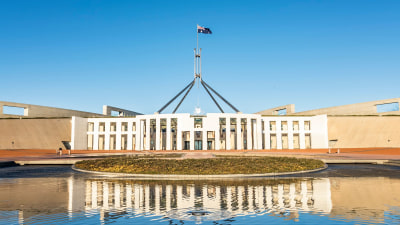Industry funds flex investor muscle on bank bonuses


The major industry superannuation funds who are members of the Australian Council of Superannuation Investors (ACSI) have used their voting power in delivering first strikes to the remuneration reports of both National Australia Bank and ANZ.
The industry funds are also considering whether the rules around bank executive remuneration should be changed to ensure the views of investors were implemented before bonuses were actually paid.
ACSI chief executive, Louise Davidson issued a statement today stating investors had sent a strong message to the boards of the two banks which had joined Westpac in receiving first strikes against their remuneration reports.
She noted that investors in NAB had registered the highest-ever vote against a remuneration report, with more than 88 per cent of shareholders voting to oppose the report.
“The unprecedented size of the vote against the NAB remuneration report reflects the fact that investors take issue with the payment of executive bonuses in a year when the Royal Commission highlighted systemic breaches of the law and mistreatment of customers within the banks,” she said.
Davidson said ACSI had been expressing concern for some time about the NAB’s new incentive structure and welcomed the decision announced by the Chair Ken Henry to rethink the scheme.
“However, it was the decision of the board to award such significant bonuses to the executive team that led to such a strong vote against the report,” she said. “Reducing short-term bonuses, rather than zeroing them, was a hollow gesture and failed to meet investor and community expectations about accountability.”
Davidson noted that ACSI supported the ‘two-strikes’ rule on remuneration but noted that it placed shareholders in a position of only being able to express a view on bonuses that had already been paid.
“Perhaps the time has come to consider whether shareholders should have a greater opportunity to prevent outcomes like this, through the introduction of a binding vote on pay. For example, companies in the UK must give shareholders a binding vote on pay policy, and may not make any payments that are outside of that policy.”
Recommended for you
Government has introduced a bill to Parliament to legislate the first stream of the QAR reforms.
ASIC now has a 1:1 ratio when it comes to court success in the enforcement of crypto activities and more action is expected as Treasury seeks to introduce a regulatory framework.
A leading governance body has hit out at “specialist interest groups proposing ad hoc law reform” when it comes to reforms of financial services legislation and believes an independent body is needed.
The release of ALRC’s final report into financial services legislation has highlighted financial advice as a “significant” focus as it seeks to reduce costs and help advisers understand their obligations, alongside the Quality of Advice Review.














